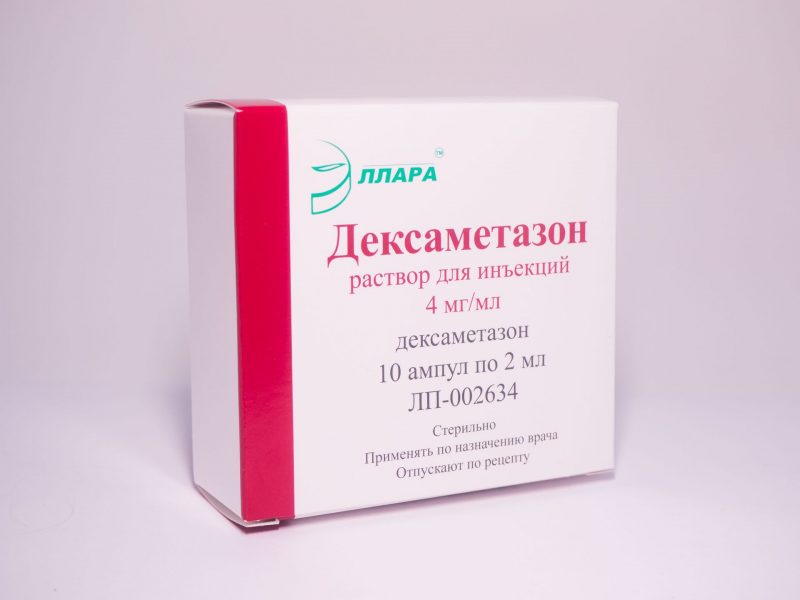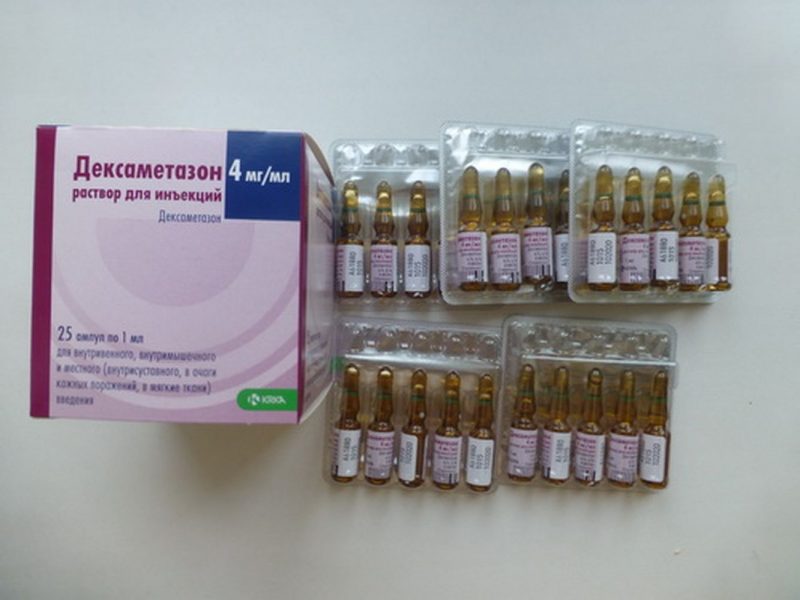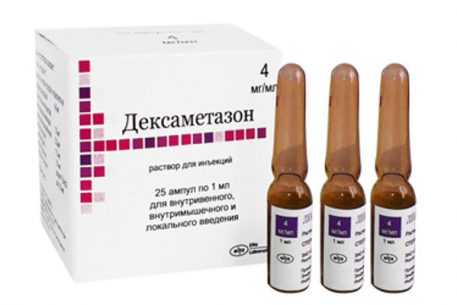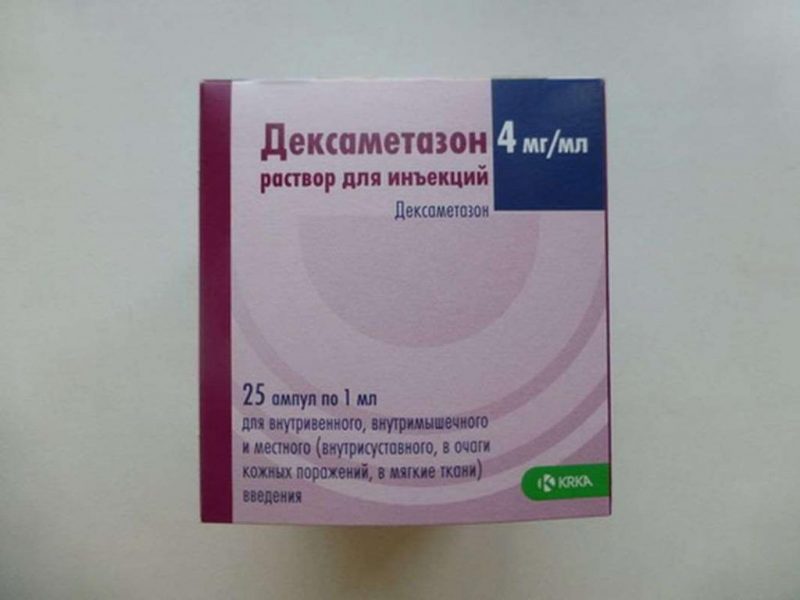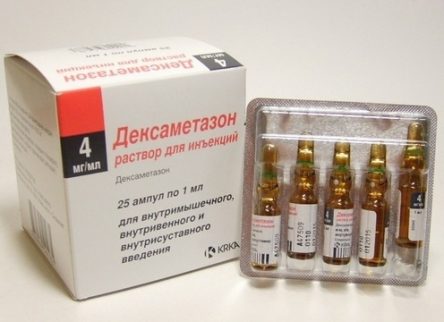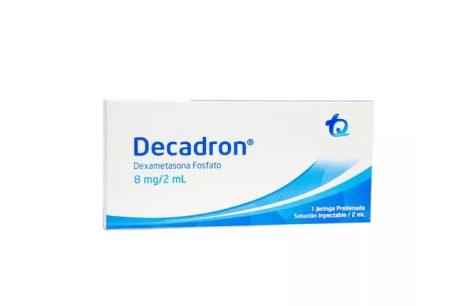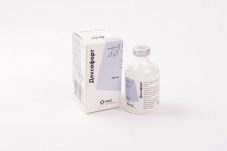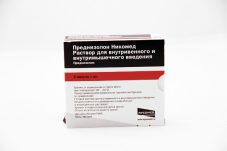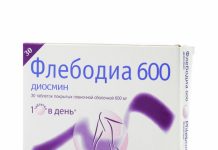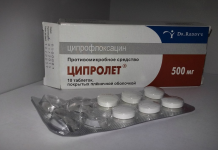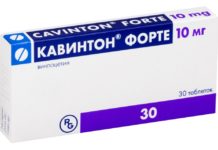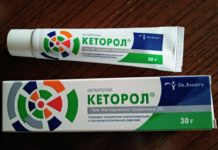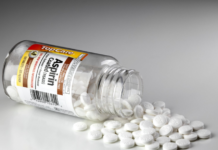Dexamethasone injections, like tablets, belong to glucocorticosteroids, are used in various fields of medicine. The drug is administered intravenously and intramuscularly.
Material Content:
- 1 Release form, composition of the drug
- 2 Pharmacological properties
- 3 Why is a steroidal anti-inflammatory drug prescribed?
- 4 Method of application, dosage for children and adults
- 5 During pregnancy and breastfeeding
- 6 Interaction with other medicines
- 7 Contraindications, side effects, overdose
- 8 Dexamethasone Analogs Injections
Release form, composition of the drug
An injectable steroidal anti-inflammatory drug consists of an active component in the form of dexamethasone sodium phosphate and excipients that do not have a therapeutic effect on the body:
- water for injection;
- disodium edetate;
- distilled glycerol;
- sodium phosphate.
On the pharmaceutical market, Dexamethasone is represented by ampoules of Belarusian, Ukrainian production in the following form:
- in ampoules Dexamethasone 4 mg / 1 ml;
- in ampoules Dexamethasone 8 mg / 2ml.
The solution for injection is administered intravenously, intramuscularly. Presented as a colorless, odorless liquid.
Pharmacological properties
Dexamethasone refers to a hormonal agent that has similar properties to hormones produced by the adrenal cortex. As a result of injections, metabolic processes, excretion, distribution, and assimilation of water by the body are regulated.
Thanks to Dexamethasone treatment:
- in the inflammatory focus, leukocyte activity is suppressed, which leads to a pronounced anti-inflammatory effect;
- capillary transmittance as a result of released histamine causes an antiallergic effect;
- the formation of antibodies is suppressed, which leads to an anti-shock effect;
- fatty, carbohydrate, protein metabolism is dosed, and also due to amino acid uptake by the kidneys, the liver, activation of insulin secretion occurs, the amount of sugar in the blood rises;
- as a result of increased synthesis of insulin, the body accumulates fat;
- metabolic processes in muscle, bone, connective, lymphoid tissues improve.
After intramuscular administration, the most active therapeutic effect is diagnosed after 8 hours. After intravenous administration - faster. The therapeutic effect with intramuscular administration lasts 2 weeks, with intravenous administration from 2 to 4 weeks. Dexamethasone is characterized by cellular decay, metabolic processes occur in the liver and kidneys. Withdrawal of the drug through the urinary system within 1-3 days.
Why is a steroidal anti-inflammatory drug prescribed?
Instructions for use indicate the possibility of introducing Dexamethasone in injections for the treatment of:
- diseases of the stomach, inflammatory processes of the gastrointestinal tract, ulcerative colitis;
- connective tissue, rheumatic heart disease, lichen;
- endocrine diseases, adrenal insufficiency, inflammatory processes of the thyroid gland, hyperplasia;
- rheumatism, arthritis, synovitis, bursitis, osteoarthritis;
- allergic processes in the form of dermatitis, food, drug allergies, rhinitis, urticaria, bronchial asthma;
- skin diseases, psoriasis, mycosis, seborrheic dermatitis;
- ophthalmic pathologies, corneal ulcers, iritis, conjunctivitis;
- diseases of the respiratory system (tuberculosis, pneumonia, berylliosis);
- renal disease;
- malignant tumors;
- anaphylactic shock;
- diseases of the hematopoietic system;
- meningitis;
- myocardial disease;
- neurology.
Important! After removing the acute stage of the disease, the ampoule Dexamethasone is replaced by a tablet type.
Method of application, dosage for children and adults
Dexamethasone injections intramuscularly for adults are prescribed individually, based on the type and severity of the disease. With cerebral edema, 10 mg are injected once into a vein to eliminate the acute stage. Next, 4 mg of a hormonal agent is prescribed four times a day until the clinical picture is completely eliminated. Gradually, over the course of a week, the dosage decreases to 2 mg three times a day.
In case of a shock, Dexamethasone injections are administered intravenously at 20 mg 4 times a day. After stabilization, shock treatment is not carried out. Typically, an injection of the drug is performed within 48 hours.
Allergic reactions are removed by intramuscular injections, based on the severity of the condition - from 4 to 8 mg. Next, a tablet form of a hormonal agent is prescribed.
If there is a need for the introduction of Dexamethasone during chemotherapy to eliminate vomiting, nausea, then 10 mg of the drug is administered once before chemotherapy.
Important! The maximum administration of Dexamethasone should not exceed 80 mg.
Children are treated with the strict prescription of the drug. The dosage of the hormonal agent is calculated from the weight of the child. Subject to the administration of the drug once a day, 10 μg of Dexamethasone is necessary per 1 kg of mass. If the introduction is required every three days, then 1 μg of the weight accounts for 23 μg of the drug.
During pregnancy and breastfeeding
During pregnancy, Dexamethasone in injections is prescribed in exceptional situations when there are vital indications. It is possible to use the hormone if the woman’s immunity perceives the fetus as a foreign body. It suppresses excessive immune activity. Long-term treatment with the drug during lactation and pregnancy can lead to serious violations of the growth of the child.
Interaction with other medicines
Injections of Dexamethasone when interacting with certain groups of medications give an undesirable effect:
- with psychotropic drugs, cataracts may occur;
- with insulin, the effectiveness of the antidiabetic drug decreases;
- with oral contraceptives, the appearance of excess hair growth on the face in women, acne;
- with diuretics, increased excretion of potassium from the body is observed;
- with acetylsalicylic acid, there is a risk of gastric ulcer;
- with antiepileptic drugs, a decrease in the effectiveness of the hormonal drug was noted;
- with anticoagulants, a decrease in the effectiveness of drugs for thrombosis is possible;
- poor tolerance was noted with cardiac drugs, which is associated with a lack of potassium;
- with ephedrine, dexamethasone is excreted from the body;
- with barbiturates, the effectiveness of Dexamethasone is weakened.
Contraindications, side effects, overdose
It is contraindicated to use Dexamethasone in ampoules even by a single injection with intolerance to the active component.
Course treatment with a hormonal agent is not indicated in the following conditions:
- viral disease;
- bacterial infection;
- parasitic infection;
- mycoses;
- immunodeficiency conditions;
- before and after vaccination;
- osteoporosis;
- myasthenia gravis;
- gastrointestinal ulcer;
- diabetes mellitus;
- liver failure;
- psychosis
- renal failure.
On a note! With the systematic use of Dexamethasone in injections, a significant increase in the patient's body weight is possible.
Possible manifestation of side effects. Their severity depends on the personality of the patient, the duration of treatment, the dosage of the hormone.
The instructions for use indicate the presence of:
- disturbed sleep;
- headache;
- the possibility of hallucinations, disorientation;
- Dizziness
- increase in blood pressure;
- nausea
- vomiting
- difficulty breathing
- sensations of hot flashes to the face;
- changes in appetite in the direction of its increase, decrease;
- gastrointestinal ulcers;
- low levels of potassium, calcium in the body;
- rapid weight gain;
- stunted growth among children;
- violations of the female cycle;
- muscle pain, joint pain;
- latent diabetes;
- osteoporosis;
- thinning of the skin;
- poor wound healing;
- increased sweating;
- muscle weakness;
- skin rashes;
- swelling;
- itching
- redness of the skin;
- reduced immunity.
Intra-articular administration of Dexamethasone is prohibited before arthroplasty, as well as when diagnosing:
- joint instability;
- frequent bleeding;
- joint fracture;
- intervertebral infections;
- osteoporosis.
With a sharp discontinuation of the drug, the following body reactions are diagnosed:
- decreased immunity;
- increased susceptibility to viral, infectious diseases;
- apathy;
- nausea;
- lack of menstrual flow;
- pain in the abdomen;
- retardation of speech, movements;
- weakness.
Sometimes, with intramuscular administration of a glucocorticosteroid, atrophy of the skin, subcutaneous layer is observed. An overdose of Dexamethasone in injection is manifested by increased side effects. In this case, symptomatic therapy is prescribed.
Dexamethasone Analogs Injections
Replacement of ampoule Dexamethasone with another glucocorticosteroid should be carried out under close medical supervision in a hospital.
The following steroid hormones are usually recommended:
- Dexaven
- Dexamed
- Decadron;
- Dexazone;
- Dexafar
- Fortecortin.
If the listed analogues are not suitable for the patient, then after consulting a doctor, you can choose a drug from another group of glucocorticosteroids, for example, prednisolone.
Dexamethasone belongs to the group of hormonal drugs, has widespread use in medicine.But as a result of drug addiction, a large number of contraindications, side effects, its use should be strictly controlled by a doctor.


